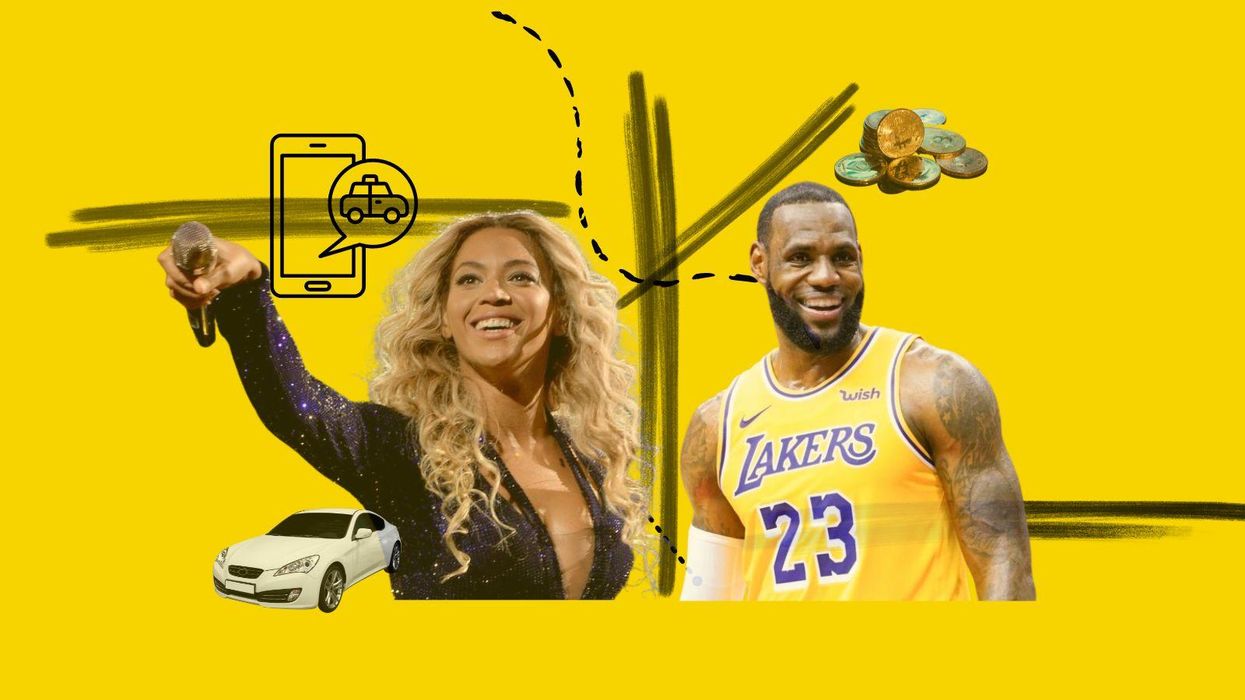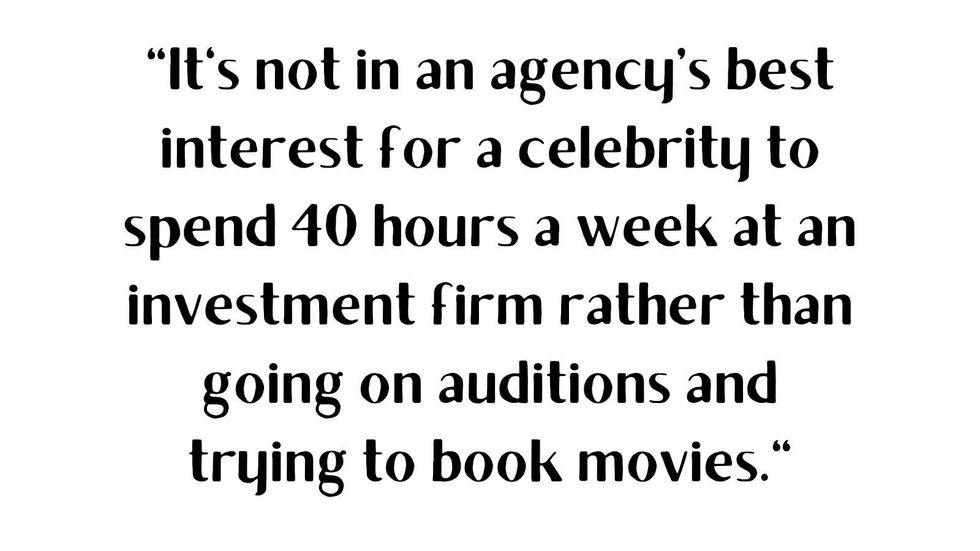The Sweat Sound of Success — Why Celebrities Are Looking for Equity Deals

In 2014, LeBron James made roughly $30 million doing absolutely nothing.
He’d begun an endorsement partnership with Beats Electronics back in 2008, taking an equity stake in the company over cash payment for doing nothing more than just wearing the headphones in public. Six years later, when Apple acquired Beats for $3 billion, James got to cash out — big time. Beyonce did the same with Uber. And the artist David Choe, with Facebook.
While deals like these were novel several years ago, more and more often celebrities are wanting more than just cash. Instead they want deals like those mentioned above otherwise known as sweat equity.
“This is very fucking new,” Jackie Fast, managing partner at early-stage fund Sandbox Studios VC, said of the increased frequency of sweat equity partnerships, in which celebrities are taking equity in the companies they promote instead of cash. “The idea was if you did an equity deal, your agent wasn't good enough to get you a cash deal. But this really just changed, I would even say in just the last two years it’s been really, really different.”
To Fast’s point, celebrities, it appears, are getting wise to the value they bring to the table when making themselves the face of a brand. While endorsements have been around forever, the talent has typically been paid a cash fee upfront — Steph Curry’s $215 million multi-year deal with Under Armour — for showcasing a brand to their followers or starring in a commercial.
But increasingly, celebrities prefer equity. For example, in 2020, oral healthcare startup Byte partnered with actress Kerry Washington to promote their telehealth platform. Thought details of the deal are scant, one can imagine it paid off when Byte was acquired by Dentsply Sirona in December 2020 for $1 billion. Singer Ellie Goulding, lead endorser in CORE Hydration, likely walked away with a solid paycheck too after the water bottle company was acquired by Keurig Dr. Pepper in late 2018 for $525 million. And Vide Beverages has had two venture funding rounds since actress Olivia Culpo was announced creative director in late 2020.
So what’s the issue? Simply put, agencies don’t have enough staff to manage the sheer number of pitch decks, startups are sending to their clients to look over.
Currently, talent agencies' business models rely on the windfall of cash they get from clients when they book major gigs or get big brand deals. So while celebrities and agents getting a sliver of the equity pie might be to an agent’s benefit down the line, the increasing cadence of sweat equity deals may make it harder to keep the lights on.
“The issue with the agencies is that they are not set up to do equity deals,” said Fast. “They can't pay rent with equity.”
That said, agencies will have to figure out a way to manage. Not least because small startups trying to gain brand recognition prefer them. The reach, engagement and trust that celebrities bring to partnerships can go a long way, Fast said. And with the sheer amount of pitch decks agents are fielding for their clients, the pressure is on from both startups and celebrities to make these deals work.
Investing and due diligence, however, take massive time and energy. And even then not every startup is going to be Facebook or Uber. Which is why these opportunities for artists or athletes to own a piece of the upside they're generating for the companies they partnered with have traditionally been relatively limited, said Amanda Groves, general partner at PLUS Capital—a venture advisory firm and broker dealer which helps high-profile artists and athletes structure deals.
“Investing requires an incredible amount of know-how, experience, sophistication and a network within venture capital and in particular in order to be able to adequately due diligence, equity risk versus cash value today,” Groves added.
Plus, the majority of startups fail, so taking an equity stake may lead to zilch a few years down the line.
For the agencies that represent them, the staff and resources needed to deep dive into researching a company is not an expense they can afford — especially when equity deals aren’t in an agency’s best interest, anyways.
“It’s a waste of time for them,” Fast said. “You're doing all these deals, you're spending loads of time on these projects that may amount to nothing.”
Nonetheless, these deals are only getting more frequent. When Fast’s Sandbox Studios, which focuses solely on startups that have celebrities attached, was founded in 2021, she didn’t expect to see more than 70 deals. But since then, Fast has seen more than 250 deals of this kind. And next year, she expects that deal count to grow to between 350 and 400.
As these deals become more commonplace, agents simply don’t have the bandwidth to handle them, Fast said. A-list clients can receive thousands of endorsement requests and inquiries per year, she continued, and even lesser known figures can be hit up by a few hundred brands a year. If an agency has hundreds of clients, just sifting through those requests would take hundreds of staff and thousands of hours. Even though major agencies like CAA and WME have venture capital arms, those staff often don’t have the time to look at hundreds of pitch decks when they also have their own work to do, Fast said.
“There just aren't enough people to be able to do that,” Fast said. “And there aren't any people because there's no money in equity deals.”
One solution is for the celebrities to get good personal business managers, Groves added. Having a good business manager could alleviate the stress of deal vetting from the agency. But any equity deal a celebrity takes still takes away time they could be using to do gigs which make them cash.
“The truth of the matter is, most agents will want the celebrity talent that they represent to do what the talent does,” Fast said. “It's not in an agency’s best interest for a celebrity to spend 40 hours a week at an investment firm rather than going on auditions and trying to book movies. The ideal is you have somebody who's constantly and wants to book movies and shows.”
- Kim Kardashian Joins the Tech Investor World ›
- Plus Capital Partner Amanda Groves on Celebrity Equity Investments ›
- Here’s Where Celebrities Invested Their Money This Year ›
- Employee By Day, Influencer By Night: The Rise Of Non-Professional Creators ›






 Image Source: Skyryse
Image Source: Skyryse